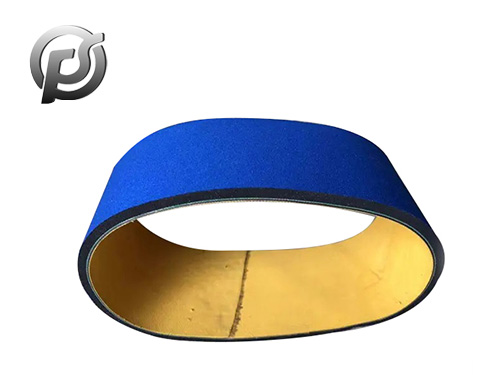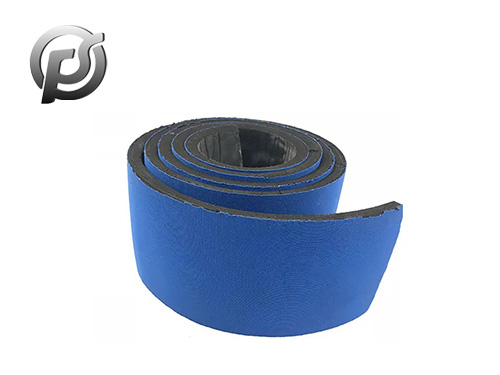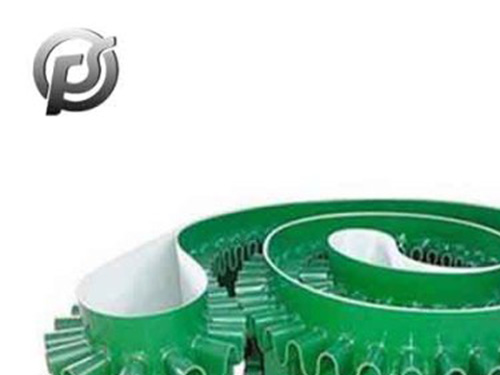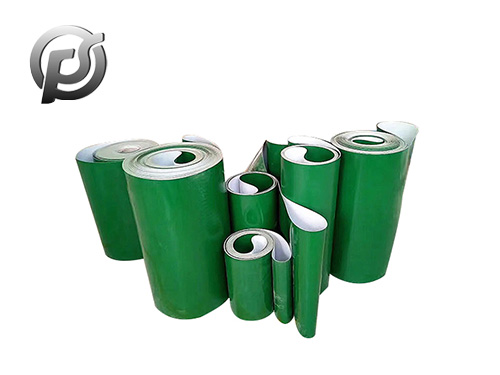Introduction:
Polyester conveyor belts play a crucial role in various industries, providing a durable and versatile solution for material handling. This article explores the characteristics, advantages, and diverse applications of polyester conveyor belts, shedding light on their significance in modern manufacturing processes.
Material Composition and Structure:
Polyester conveyor belts are constructed using polyester fabric as the primary material. This fabric is coated with various polymers to enhance its strength, flexibility, and resistance to abrasion. The modular structure of these belts consists of multiple layers that contribute to their robustness and reliability.
High Tensile Strength:
One of the key advantages of polyester conveyor belts is their exceptional tensile strength. This characteristic makes them ideal for conveying heavy loads over long distances without compromising on performance. The high tensile strength ensures minimal stretching, resulting in less maintenance and longer service life.
Resistance to Moisture and Chemicals:
Polyester conveyor belts exhibit excellent resistance to moisture and chemicals, making them suitable for diverse industrial environments. This resistance helps prevent the degradation of the belt material and ensures consistent performance even in challenging conditions, such as those found in mining, agriculture, and chemical processing.
Flexibility and Adaptability:
Polyester conveyor belts are known for their flexibility and adaptability to various conveying applications. Whether it's handling bulk materials, agricultural products, or unit loads, these belts can be customized to meet specific requirements. Their versatility makes them a preferred choice across a wide range of industries.
Low Stretch and Elongation:
Unlike some other conveyor belt materials, polyester belts have low stretch and elongation properties. This is particularly important in applications where precise movement and positioning are crucial. The low stretch ensures accurate and reliable conveying, reducing the need for frequent adjustments and maintenance.
Applications Across Industries:
Polyester conveyor belts find applications in diverse industries, including mining, manufacturing, food processing, and logistics. They are commonly used for transporting bulk materials, aggregates, grains, and packaged goods. The adaptability and reliability of polyester conveyor belts contribute to their widespread acceptance in various industrial sectors.
Environmental Sustainability:
As businesses increasingly focus on environmental sustainability, polyester conveyor belts stand out for their eco-friendly characteristics. They are recyclable and contribute to reducing the environmental impact of industrial operations, aligning with the growing global emphasis on sustainable practices.
Conclusion:
Polyester conveyor belts have become indispensable in modern industrial processes due to their outstanding tensile strength, resistance to moisture and chemicals, flexibility, and low maintenance requirements. As technology and materials continue to advance, polyester conveyor belts are likely to evolve further, maintaining their position as a reliable and efficient solution for material handling across diverse industries.


 PE Conveyor Belts: Characteristics, Applications, and Advantages
PE Conveyor Belts: Characteristics, Applications, and Advantages
 Stone Conveyor Belt: Enhancing Efficiency and Productivity in Material Handling
Stone Conveyor Belt: Enhancing Efficiency and Productivity in Material Handling
 Optimizing Operations with PE Conveyor Belts: Durability, Efficiency, and Versatility
Optimizing Operations with PE Conveyor Belts: Durability, Efficiency, and Versatility